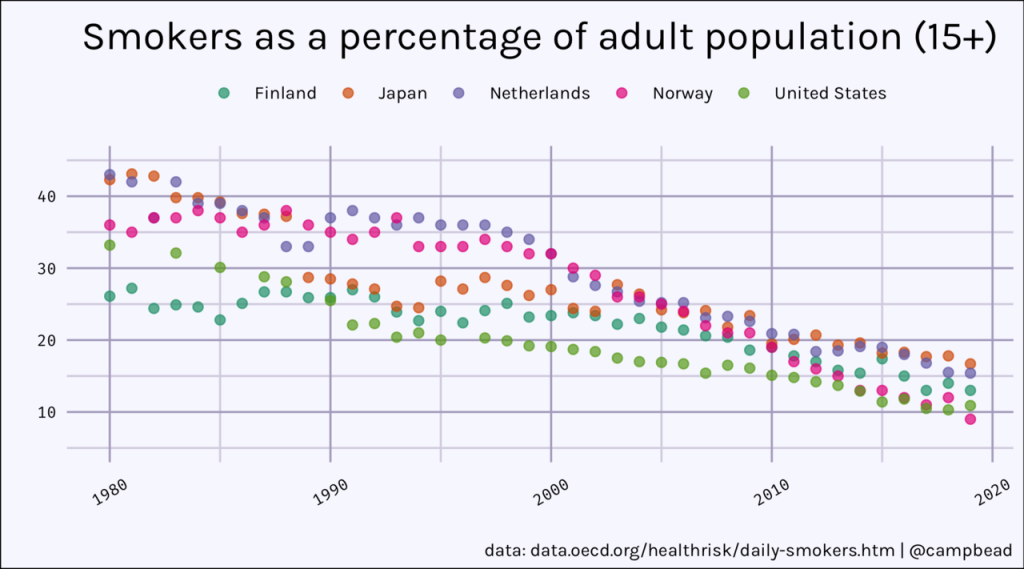Japan Sees Steady Drop in Smokers Thanks to Changing Attitudes
Japan has seen a steady decline in smoking rates over the past two decades, according to data from the Ministry of Health, Labor and Welfare. The 2022 National Health and Nutrition Survey showed that 25.4% of Japanese men were smokers, down from 48.4% in 2001. The smoking rate for Japanese women also fell to 7.7% in 2022 from a high of 15% in the 1990s.

Several factors have contributed to this downward trend. Japan’s revised Health Promotion Law that went into effect in 2020 includes measures like banning smoking indoors in many public spaces and requiring separate smoking areas in businesses. This law has reduced opportunities for smoking and exposure to secondhand smoke.
In addition, health consciousness has risen among Japanese citizens. Public awareness campaigns about the dangers of smoking have made an impact, especially on younger generations. Over 70% of Japanese adults now believe smoking is harmful to health, up from under 40% in 2000.
The highest smoking rates are still among middle-aged Japanese men. In 2022, 34.6% of men in their 40s smoked. For women, those in their 50s had the highest smoking rate at 12%. However, smoking rates have declined across nearly all age groups compared to previous years.
Big tobacco companies have taken note of shifting attitudes. Japan Tobacco, the former state monopoly, has invested heavily in smokeless tobacco and e-cigarette products to attract more health-conscious consumers. However, loose regulation has allowed continued marketing toward youth.
While the smoking rate in Japan remains well above the OECD average, the country seems to be moving steadily toward a smoke-free future. Stronger promotion of smoking cessation resources could help more smokers quit. Japan still has room for improvement in tobacco policies, but the social stigma against smoking continues to grow.